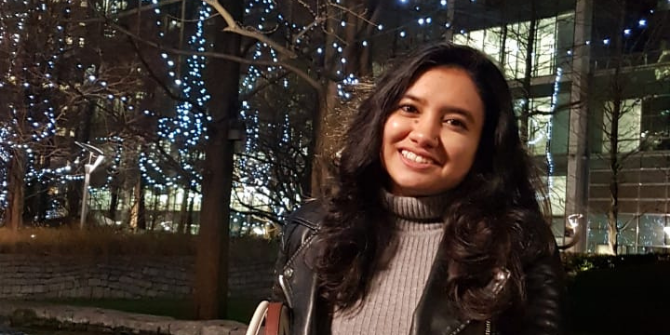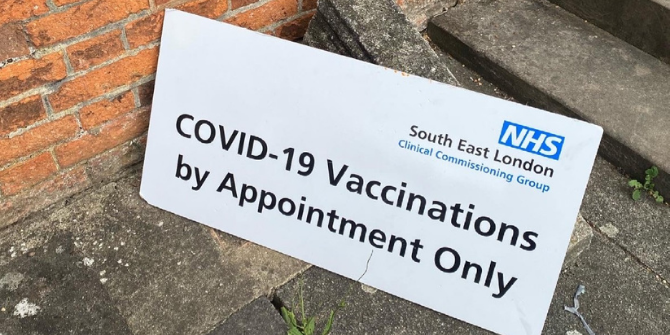Lauren Maffeo (MSc ’12) has reported on and worked within the global technology sector. Born and raised in the US, she started her career as a freelance journalist covering tech trends for The Guardian and The Next Web from London. Today, Lauren works as an associate principal analyst at GetApp, where she covers the impact of emerging tech like AI and blockchain on small and midsize business owners.
In 2017, Lauren was named to The Drum’s 50 Under 30 list of women worth watching in digital. Earlier this year, she was shortlisted for the Future Stars of Tech Award in AI and Machine Learning by Information Age.
In Lauren’s spare time, she serves as Chair of the LSE’s alumni chapter in Washington, DC, where she lives. LSE Careers caught up with Lauren to learn more about her post-Master’s achievements.
What does a typical day at work look like for you?
I spend my days working on all aspects of content production. This ranges from researching keywords for article ideas and writing/editing drafts to reviewing the performance of each article we publish in our analytics tool.
I research and write about how various technologies are used within small and midsize businesses. I specialise in cloud business intelligence (BI) SaaS products, but I also write about technologies like AI and blockchain. I’ve covered robotics for bricklaying, semantic analysis for marketing, blockchain for supply chains, and automation in accounting.
How did studying your Master’s in the UK and then going back to the US affect your career prospects and goals?
Earning my Master’s and starting my career in the UK helped me learn what I value in a job. Both experiences made me realise that I want to work as part of a global team with diverse points of view.
My first job back in the States was at a company with a homogeneous workforce, and I quickly learned that it was not a fit for me. I currently work on a core team of six, and all of us have lived or worked abroad at some point in our lives. Thanks in large part to advancements in technology, the world of work is more remote and diverse than ever. Earning my Master’s in the UK prepared me well for the future of work.
What skills did you learn at LSE that you find yourself still using in your current role?
I see a lot of parallels between my MSc education and my current role. A strong liberal arts education prepares students to spot gaps in academic literature; critically question the status quo; and contribute new ideas that should advance your field of choice.
All of these skills are hugely relevant in tech. The industry is at a crossroads where it’s trying to reconcile its “Move fast and break things” mindset with the need to be more thoughtful about how its creations impact people. I can map the lack of this perspective in tech back to a lack of liberal arts thinking.
What would be your advice to LSE students hoping to pursue a career in technology and digital media?
The tech and digital media industry is full of opportunities for people of all skills. We need computer scientists to build products, but we also need product managers, business analysts, content writers, and voice-user interface designers. And many of these roles are best suited for people who demonstrate strong liberal arts thinking. If you’re interested in tech and its rapid pace of advancement excites you, there will be no shortage of work for you.
What do you foresee for the future of your career and your industry?
Any rules-based, repetitive task will be automated by machines. This will change the way each job is performed as we know it today. Although this will result in the loss of some jobs, it mostly means that humans will work in tandem with technologies which will automate tasks that people used to perform. Humans will perform the tasks that we excel at (i.e. those involving critical thought), while machines will perform the tasks that they excel at. (i.e. scanning piles of documents to find specific words.)





2 Comments